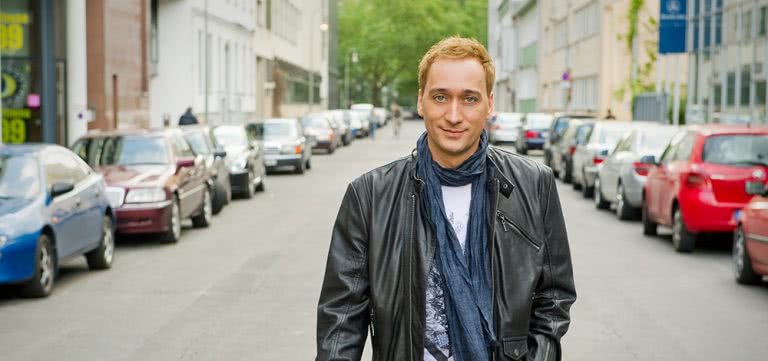There’s been much talk among both artists and the media in the last few years concerning an EDM revolution. The idea has seemingly been confirmed by the increase of electronic sounds in mainstream pop music. However, one of the most respected figures in global electronic dance music for the last two decades, German DJ and producer Paul van Dyk, observes scarce innovation coming out of the purported revolutionaries.
“For me, electronic music has always been about breaking the boundaries on the creative side, as much as using the latest technology,” he says. “If you look at what’s going on with the stuff that’s being called EDM in some parts of the world, that’s not really electronic music anymore. That’s just like the ever same-sounding pop song.”
Evidently van Dyk perceives a major distinction between the EDM dominating the mainstream and his own career output. “Every single thing that I’ve done actually has an importance to me. For me electronic music is a very intense, very important art form.”
Van Dyk’s artistic ambitions haven’t prevented him from gaining popular success. Since emerging in the early ’90s, he’s released six albums of original music, achieving aggregated album sales of over four million. Back in 2003, his fourth LP Reflections was the first nominee in the newly introduced Best Dance/Electronic Album category at the Grammy Awards (he didn’t take the award home, but in 2009 he received a Grammy for his work on the soundtrack to Christopher Nolan’s The Dark Knight).Van Dyk offers his thoughts on the acts nominated in the Dance/Electronic category more recently.
“To be really honest the only person in the last two, three or four years who was valuable or should have been the winner of the dance music award is the sound designer of the Nexus 2 software synthesisers, because everything comes from that machine. Everybody uses those presets – I mean, everybody who’s in that ‘EDM’ thing.”
Such disparaging opinions about the contemporary EDM proliferation are warranted when you consider van Dyk’s been performing and recording for over 20 years. He remains one of the world’s busiest DJs, however he’s not tiring of his profession.
“What I do I’m really passionate about, so it doesn’t feel like a job. It doesn’t feel like as much work as it is,” he says. “I appreciate every day what I can do. The fact I have such a loyal fan base enables me to see the world and play my favourite music in front of my favourite audience.”
A regular visitor to our shores, van Dyk returns to Australia this March for the Future Music Festival. Anyone who has seen van Dyk in the past will be aware that his live show is not a passive undertaking. “I’m not just pressing ‘play’ on a CD player and waiting for the record to be over. There’s so much more that I do all the time that possibly can [go] wrong that gives the whole thing a very intense and a very lively feeling.”
“As soon as it was possible to take production elements with me onstage I did that – more than ten years ago. Ever since, my equipment list and all the stuff that I use onstage [has] kept evolving. I have keyboards onstage and a computer and custom-made mixers and controllers. It enables me to actually play live so every set is fairly different – it varies from venue to venue.”
Van Dyk’s stage setup doubles as a mobile studio, which allows him to evade the common creative barriers enforced by being on tour. He reveals that his songwriting experiments aren’t merely conducted behind closed doors.
“I’m trying out things live when I play. I’m trying some riffs and seeing the reaction directly when I play it live. On the last album especially and with new stuff coming out, with [the forthcoming record] Politics Of Dancing 3 as well, some of those hooks that are in the album actually came up while I was playing live. I let the basic chord play out and I had some drums and then I played a melody on top and I’m just like, ‘Wow, I really like this.’ When you are inspired by the moment, directly by your audience – it doesn’t get more direct.”
In addition to utilising crowd responses to evaluate new music, van Dyk indicates the attitude of those present in the room has a big impact on the overall direction of his shows.
“I have a very clear idea about the sound and the music I like to bring across but everything else is always down to the interaction with my audience. It’s always about the vibe and about the feel and of course the communication with the audience … I have an idea of which direction I want to go but I have a few thousand people in front of me that have an opinion of where we all should go together.”
Paul van Dyk plays at Future Music Festival withDeadmau5, Hardwell, Macklemore & Ryan Lewis, Phoenix, Kaskade, Knife Party, Rudimental, Sub Focusand more on Saturday March 8 at Royal Randwick Racecourse.


































